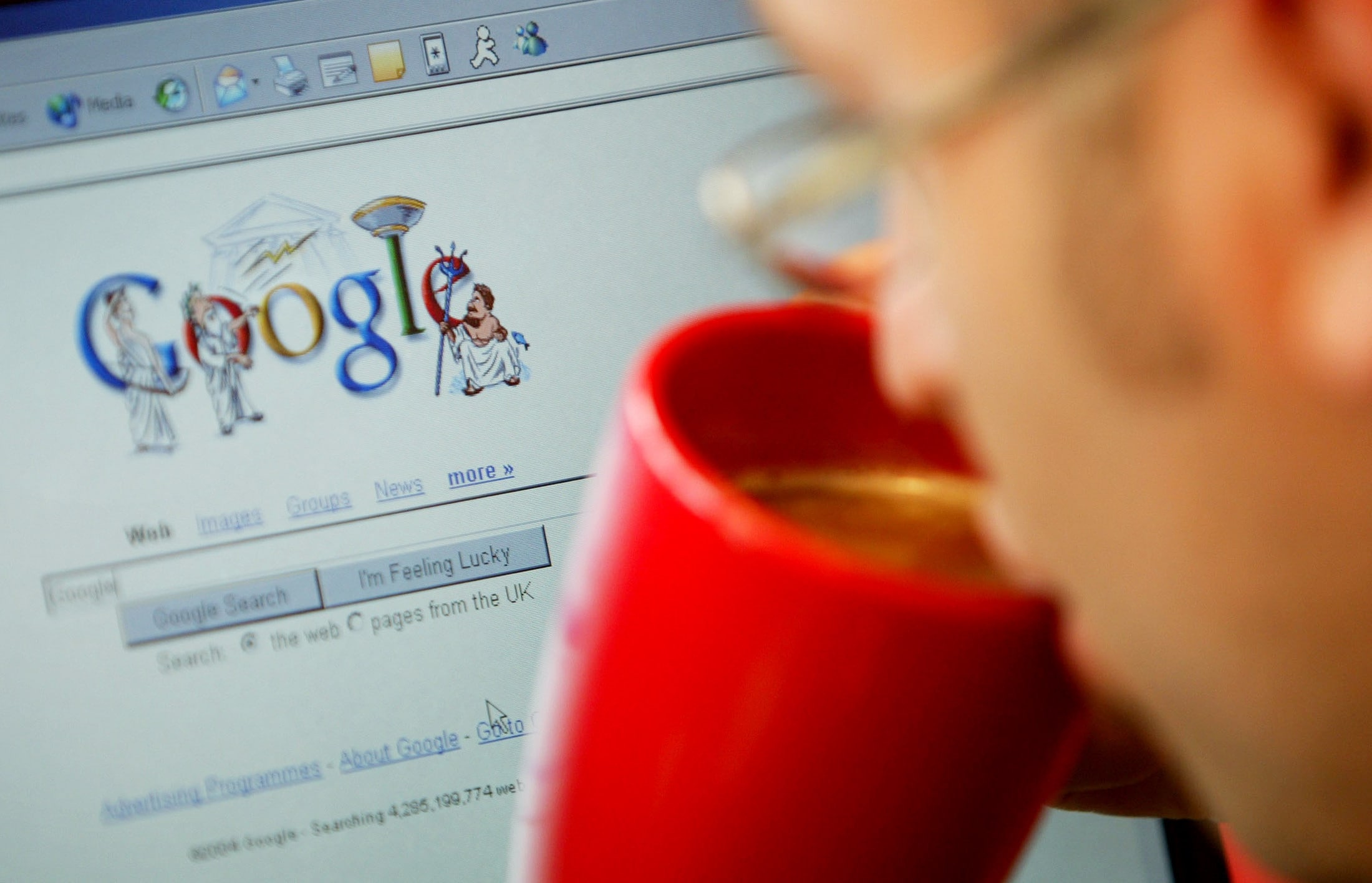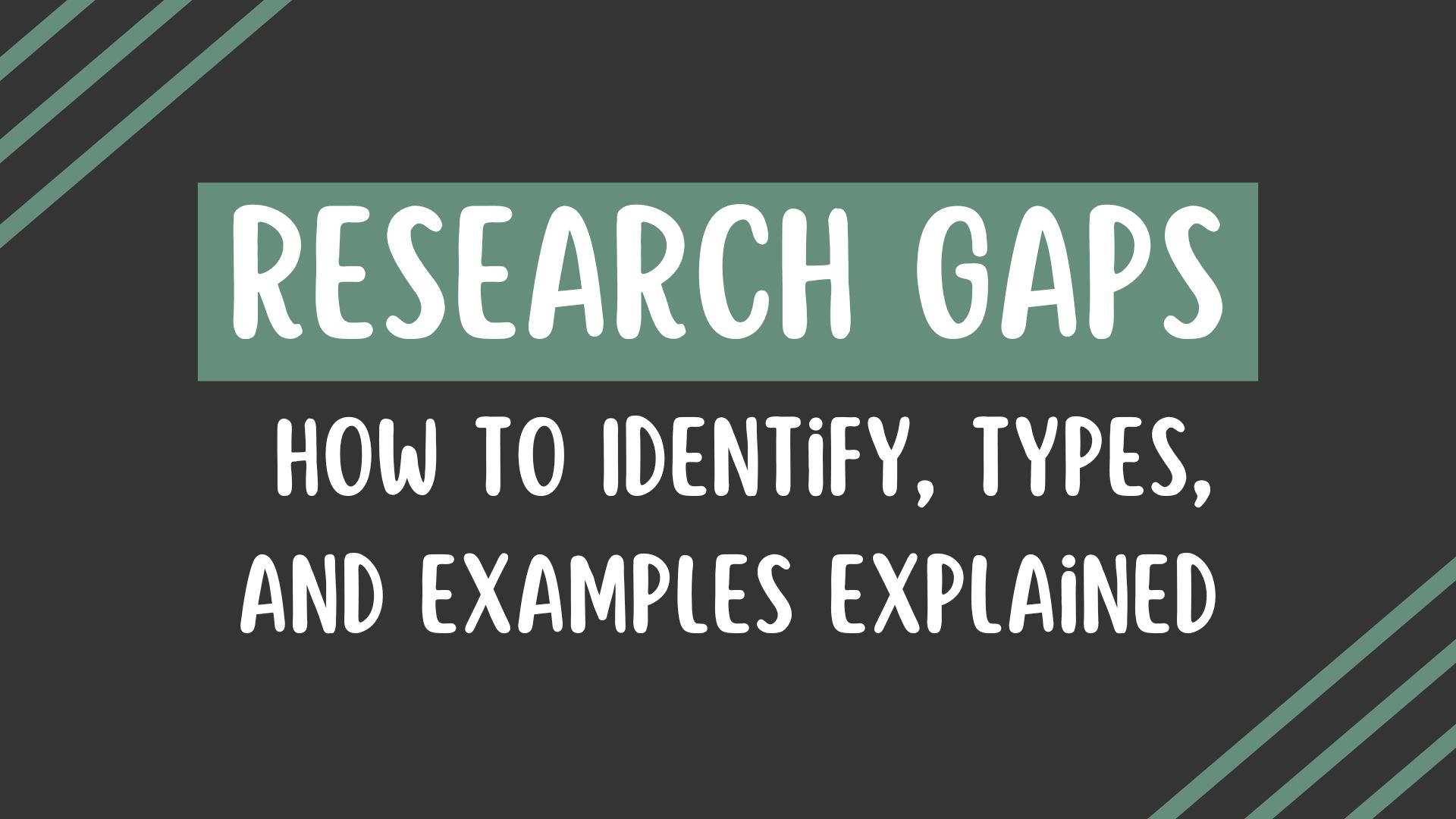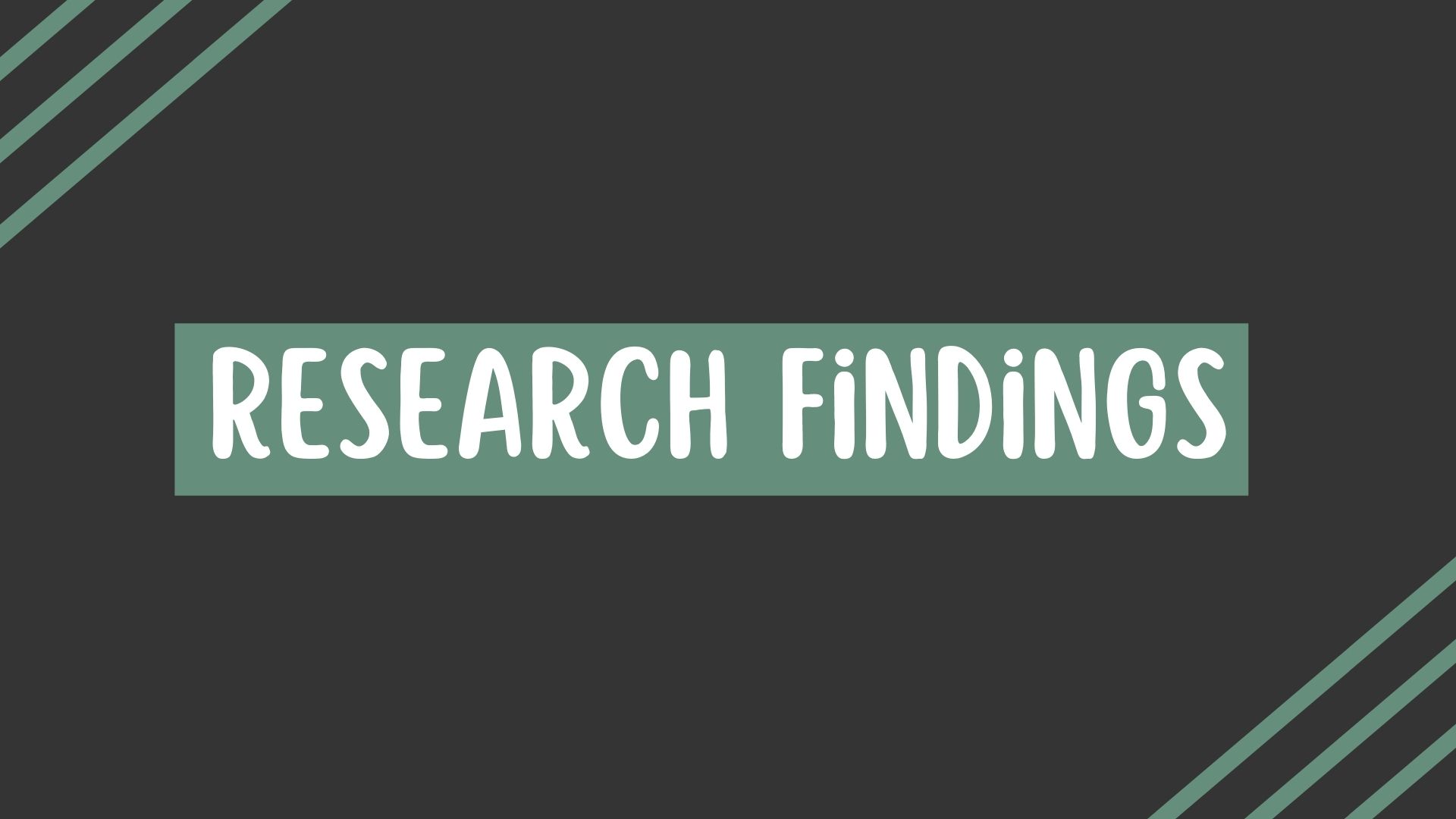How has technology changed - and changed us - in the past 20 years?

Remember this? Image: REUTERS/Stephen Hird

.chakra .wef-spn4bz{transition-property:var(--chakra-transition-property-common);transition-duration:var(--chakra-transition-duration-fast);transition-timing-function:var(--chakra-transition-easing-ease-out);cursor:pointer;text-decoration:none;outline:2px solid transparent;outline-offset:2px;color:inherit;}.chakra .wef-spn4bz:hover,.chakra .wef-spn4bz[data-hover]{text-decoration:underline;}.chakra .wef-spn4bz:focus-visible,.chakra .wef-spn4bz[data-focus-visible]{box-shadow:var(--chakra-shadows-outline);} Madeleine Hillyer
- Since the dotcom bubble burst back in 2000, technology has radically transformed our societies and our daily lives.
- From smartphones to social media and healthcare, here's a brief history of the 21st century's technological revolution.
Just over 20 years ago, the dotcom bubble burst , causing the stocks of many tech firms to tumble. Some companies, like Amazon, quickly recovered their value – but many others were left in ruins. In the two decades since this crash, technology has advanced in many ways.
Many more people are online today than they were at the start of the millennium. Looking at broadband access, in 2000, just half of Americans had broadband access at home. Today, that number sits at more than 90% .

This broadband expansion was certainly not just an American phenomenon. Similar growth can be seen on a global scale; while less than 7% of the world was online in 2000, today over half the global population has access to the internet.
Similar trends can be seen in cellphone use. At the start of the 2000s, there were 740 million cell phone subscriptions worldwide. Two decades later, that number has surpassed 8 billion, meaning there are now more cellphones in the world than people
Have you read?
The future of jobs report 2023, how to follow the growth summit 2023.
At the same time, technology was also becoming more personal and portable. Apple sold its first iPod in 2001, and six years later it introduced the iPhone, which ushered in a new era of personal technology. These changes led to a world in which technology touches nearly everything we do.
Technology has changed major sectors over the past 20 years, including media, climate action and healthcare. The World Economic Forum’s Technology Pioneers , which just celebrated its 20th anniversary, gives us insight how emerging tech leaders have influenced and responded to these changes.
Media and media consumption
The past 20 years have greatly shaped how and where we consume media. In the early 2000s, many tech firms were still focused on expanding communication for work through advanced bandwidth for video streaming and other media consumption that is common today.
Others followed the path of expanding media options beyond traditional outlets. Early Tech Pioneers such as PlanetOut did this by providing an outlet and alternative media source for LGBTQIA communities as more people got online.
Following on from these first new media options, new communities and alternative media came the massive growth of social media. In 2004 , fewer than 1 million people were on Myspace; Facebook had not even launched. By 2018, Facebook had more 2.26 billion users with other sites also growing to hundreds of millions of users.

While these new online communities and communication channels have offered great spaces for alternative voices, their increased use has also brought issues of increased disinformation and polarization.
Today, many tech start-ups are focused on preserving these online media spaces while also mitigating the disinformation which can come with them. Recently, some Tech Pioneers have also approached this issue, including TruePic – which focuses on photo identification – and Two Hat , which is developing AI-powered content moderation for social media.
Climate change and green tech
Many scientists today are looking to technology to lead us towards a carbon-neutral world. Though renewed attention is being given to climate change today, these efforts to find a solution through technology is not new. In 2001, green tech offered a new investment opportunity for tech investors after the crash, leading to a boom of investing in renewable energy start-ups including Bloom Energy , a Technology Pioneer in 2010.
In the past two decades, tech start-ups have only expanded their climate focus. Many today are focuses on initiatives far beyond clean energy to slow the impact of climate change.
Different start-ups, including Carbon Engineering and Climeworks from this year’s Technology Pioneers, have started to roll out carbon capture technology. These technologies remove CO2 from the air directly, enabling scientists to alleviate some of the damage from fossil fuels which have already been burned.
Another expanding area for young tech firms today is food systems innovation. Many firms, like Aleph Farms and Air Protein, are creating innovative meat and dairy alternatives that are much greener than their traditional counterparts.
Biotech and healthcare
The early 2000s also saw the culmination of a biotech boom that had started in the mid-1990s. Many firms focused on advancing biotechnologies through enhanced tech research.
An early Technology Pioneer, Actelion Pharmaceuticals was one of these companies. Actelion’s tech researched the single layer of cells separating every blood vessel from the blood stream. Like many other biotech firms at the time, their focus was on precise disease and treatment research.
While many tech firms today still focus on disease and treatment research, many others have been focusing on healthcare delivery. Telehealth has been on the rise in recent years , with many young tech expanding virtual healthcare options. New technologies such as virtual visits, chatbots are being used to delivery healthcare to individuals, especially during Covid-19.
Many companies are also focusing their healthcare tech on patients, rather than doctors. For example Ada, a symptom checker app, used to be designed for doctor’s use but has now shifted its language and interface to prioritize giving patients information on their symptoms. Other companies, like 7 cups, are focused are offering mental healthcare support directly to their users without through their app instead of going through existing offices.
The past two decades have seen healthcare tech get much more personal and use tech for care delivery, not just advancing medical research.
The World Economic Forum was the first to draw the world’s attention to the Fourth Industrial Revolution, the current period of unprecedented change driven by rapid technological advances. Policies, norms and regulations have not been able to keep up with the pace of innovation, creating a growing need to fill this gap.
The Forum established the Centre for the Fourth Industrial Revolution Network in 2017 to ensure that new and emerging technologies will help—not harm—humanity in the future. Headquartered in San Francisco, the network launched centres in China, India and Japan in 2018 and is rapidly establishing locally-run Affiliate Centres in many countries around the world.
The global network is working closely with partners from government, business, academia and civil society to co-design and pilot agile frameworks for governing new and emerging technologies, including artificial intelligence (AI) , autonomous vehicles , blockchain , data policy , digital trade , drones , internet of things (IoT) , precision medicine and environmental innovations .
Learn more about the groundbreaking work that the Centre for the Fourth Industrial Revolution Network is doing to prepare us for the future.
Want to help us shape the Fourth Industrial Revolution? Contact us to find out how you can become a member or partner.
In the early 2000s, many companies were at the start of their recovery from the bursting dotcom bubble. Since then, we’ve seen a large expansion in the way tech innovators approach areas such as new media, climate change, healthcare delivery and more.
At the same time, we have also seen tech companies rise to the occasion of trying to combat issues which arose from the first group such as internet content moderation, expanding climate change solutions.
The Technology Pioneers' 2020 cohort marks the 20th anniversary of this community - and looking at the latest awardees can give us a snapshot of where the next two decades of tech may be heading.
Don't miss any update on this topic
Create a free account and access your personalized content collection with our latest publications and analyses.
License and Republishing
World Economic Forum articles may be republished in accordance with the Creative Commons Attribution-NonCommercial-NoDerivatives 4.0 International Public License, and in accordance with our Terms of Use.
The views expressed in this article are those of the author alone and not the World Economic Forum.
Stay up to date:
Technological transformation.

.chakra .wef-1v7zi92{margin-top:var(--chakra-space-base);margin-bottom:var(--chakra-space-base);line-height:var(--chakra-lineHeights-base);font-size:var(--chakra-fontSizes-larger);}@media screen and (min-width: 56.5rem){.chakra .wef-1v7zi92{font-size:var(--chakra-fontSizes-large);}} Explore and monitor how .chakra .wef-ugz4zj{margin-top:var(--chakra-space-base);margin-bottom:var(--chakra-space-base);line-height:var(--chakra-lineHeights-base);font-size:var(--chakra-fontSizes-larger);color:var(--chakra-colors-yellow);}@media screen and (min-width: 56.5rem){.chakra .wef-ugz4zj{font-size:var(--chakra-fontSizes-large);}} Digital Communications is affecting economies, industries and global issues
Forum stories .chakra .wef-dog8kz{margin-top:var(--chakra-space-base);margin-bottom:var(--chakra-space-base);line-height:var(--chakra-lineheights-base);font-weight:var(--chakra-fontweights-normal);} newsletter.
Bringing you weekly curated insights and analysis on the global issues that matter.
.chakra .wef-1dtnjt5{display:flex;align-items:center;flex-wrap:wrap;} More on Forum Institutional .chakra .wef-17xejub{flex:1;justify-self:stretch;align-self:stretch;} .chakra .wef-2sx2oi{display:inline-flex;vertical-align:middle;padding-inline-start:var(--chakra-space-1);padding-inline-end:var(--chakra-space-1);text-transform:uppercase;font-size:var(--chakra-fontSizes-smallest);border-radius:var(--chakra-radii-base);font-weight:var(--chakra-fontWeights-bold);background:none;box-shadow:var(--badge-shadow);align-items:center;line-height:var(--chakra-lineHeights-short);letter-spacing:1.25px;padding:var(--chakra-space-0);white-space:normal;color:var(--chakra-colors-greyLight);box-decoration-break:clone;-webkit-box-decoration-break:clone;}@media screen and (min-width: 37.5rem){.chakra .wef-2sx2oi{font-size:var(--chakra-fontSizes-smaller);}}@media screen and (min-width: 56.5rem){.chakra .wef-2sx2oi{font-size:var(--chakra-fontSizes-base);}} See all

Davos 2025: How to follow the Annual Meeting on our digital channels
Beatrice Di Caro
December 17, 2024

The other 51 weeks: what happens before and after Davos?

Davos 2025: What to expect and who's coming?

Unlocking renewable energy future in emerging markets

What is Davos? 7 things to know about the World Economic Forum's Annual Meeting

What is the gig economy and what's the deal for gig workers?
- Entertainment
- Environment
- Information Science and Technology
- Social Issues
Home Essay Samples History 21St Century
Exploring the Impact of 21st Century Technology
Table of contents, the ubiquity of 21st century technology, impact on industries and economies, revolutionizing education and learning, challenges and ethical considerations, unleashing innovation and possibilities, conclusion: embracing the digital era.
*minimum deadline
Cite this Essay
To export a reference to this article please select a referencing style below

- Atlantic Slave Trade
- Abigail Williams
Related Essays
Need writing help?
You can always rely on us no matter what type of paper you need
*No hidden charges
100% Unique Essays
Absolutely Confidential
Money Back Guarantee
By clicking “Send Essay”, you agree to our Terms of service and Privacy statement. We will occasionally send you account related emails
You can also get a UNIQUE essay on this or any other topic
Thank you! We’ll contact you as soon as possible.

Sample Essays on Technology (300, 500, and 1000 Words)
- July 10, 2024
Dr. Marvin L. Smith
In today’s rapidly evolving digital landscape, the ability to articulate thoughts on technology’s impact on our world is becoming increasingly important. Whether you’re a student working on a class assignment, a researcher preparing a paper, or a professional crafting a report, understanding how to write effectively about technology at various lengths is a valuable skill.
This article presents three sample essays on the topic of technology, each tailored to a specific word count: 300, 500, and 1000 words. These essays serve as models to demonstrate how the same subject can be approached with different levels of depth and detail, depending on the required length.
The 300-word essay offers a concise overview, touching on key points about technology’s influence on our lives. The 500-word version allows for a more detailed exploration of these themes, while the 1000-word essay provides a comprehensive analysis, delving into nuanced aspects of technology’s impact across various sectors.
By examining these samples, readers can gain insights into effective essay structure, the art of scaling content to meet word count requirements, and techniques for maintaining coherence and depth at different lengths. Whether you’re looking to craft a brief summary or an in-depth analysis, these examples will guide you in articulating your thoughts on technology’s role in shaping our present and future.
As you read through these sample essays, pay attention to how ideas are introduced, developed, and concluded at each length. Notice how additional details, examples, and perspectives are incorporated as the word count increases, providing a roadmap for your own writing endeavors on this ever-relevant topic.
Sample Essay on Technology (300, 500, and 1000 Words)
The following are three sample essays on technology, each crafted to demonstrate effective writing at different lengths
Technology: Shaping Our Present and Future (300 words)
Technology has become an integral part of our daily lives, revolutionizing the way we work, communicate, and interact with the world around us. From smartphones to artificial intelligence, technological advancements have transformed nearly every aspect of society, bringing both unprecedented opportunities and complex challenges.
One of the most significant impacts of technology is in the realm of communication. The internet and mobile devices have made it possible to connect with people across the globe instantly, breaking down geographical barriers and fostering global collaboration. Social media platforms have changed how we share information and maintain relationships, though they also raise concerns about privacy and the spread of misinformation.
In the workplace, technology has dramatically increased productivity and efficiency. Automation and artificial intelligence are streamlining processes and enabling businesses to operate on a global scale. However, these advancements also raise questions about job displacement and the need for workers to continuously adapt their skills to remain relevant in an evolving job market.
Education has been transformed by technology, with online learning platforms and digital resources making knowledge more accessible than ever before. Students can now access a wealth of information at their fingertips, collaborate on projects remotely, and engage with interactive learning tools that cater to diverse learning styles.
While the benefits of technology are numerous, it also presents challenges. Issues such as cybersecurity threats, digital addiction, and the environmental impact of electronic waste require careful consideration and proactive solutions.
As we look to the future, emerging technologies like quantum computing, biotechnology, and space exploration promise to push the boundaries of human achievement even further. It is crucial that we approach these advancements with a balance of enthusiasm and ethical consideration, ensuring that technology continues to serve humanity’s best interests while mitigating potential risks.
Technology: Transforming Our World (500 words)
In the 21st century, technology has become the driving force behind unprecedented changes in human society. From the way we communicate and work to how we learn and entertain ourselves, technological advancements have reshaped nearly every facet of our lives. This digital revolution brings with it a myriad of opportunities and challenges that are continually evolving as innovation pushes forward at an ever-increasing pace.
One of the most profound impacts of technology is in the realm of communication. The internet, coupled with mobile devices, has created a globally connected world where information flows freely across borders. Social media platforms have revolutionized how we share experiences, express opinions, and maintain relationships. While this interconnectedness has fostered global collaboration and cultural exchange, it also raises concerns about privacy, the spread of misinformation, and the potential for technology to exacerbate social divisions.
In the workplace, technology has dramatically increased productivity and efficiency. Automation and artificial intelligence are streamlining processes, enabling businesses to operate on a global scale with unprecedented speed and accuracy. Cloud computing has made it possible for teams to collaborate seamlessly across vast distances, while data analytics provides insights that drive informed decision-making. However, these advancements also raise questions about job displacement and the need for workers to continuously adapt their skills to remain relevant in an evolving job market.
The field of education has been transformed by technology, with online learning platforms and digital resources making knowledge more accessible than ever before. Students can now access a wealth of information at their fingertips, engage with interactive learning tools, and participate in virtual classrooms that transcend geographical boundaries. This democratization of education has the potential to reduce inequalities and provide opportunities for lifelong learning.
Healthcare is another sector experiencing a technological revolution. Telemedicine, wearable devices, and AI-assisted diagnostics are improving patient care and making healthcare more accessible. Genetic engineering and personalized medicine promise to revolutionize treatment approaches, while 3D printing technology is opening new possibilities in prosthetics and organ transplantation.
The entertainment industry has been radically altered by technology, with streaming services, virtual reality, and augmented reality offering immersive experiences that blur the lines between the digital and physical worlds. Gaming has evolved into a multi-billion dollar industry, with esports competitions drawing millions of viewers worldwide.
While the benefits of technology are numerous, it also presents significant challenges. Cybersecurity threats have become increasingly sophisticated, posing risks to individuals, businesses, and national security. The issue of digital addiction, particularly among younger generations, raises concerns about mental health and social development. Additionally, the rapid pace of technological change often outpaces regulatory frameworks, creating ethical dilemmas in areas such as data privacy, AI development, and biotechnology.
The environmental impact of technology is another critical consideration. While innovations in renewable energy and smart city design offer hope for a more sustainable future, the production and disposal of electronic devices contribute significantly to pollution and resource depletion.
As we look to the future, emerging technologies like quantum computing, nanotechnology, and space exploration promise to push the boundaries of human achievement even further. It is crucial that we approach these advancements with a balance of enthusiasm and ethical consideration, ensuring that technology continues to serve humanity’s best interests while mitigating potential risks.
In conclusion, technology’s role in shaping our world is undeniable and irreversible. As we navigate this digital age, it is essential to harness the power of innovation responsibly, addressing challenges proactively and working towards a future where technology enhances human potential and contributes to the greater good of society.
Technology: Revolutionizing Our World and Shaping Our Future (1000 words)
In the rapidly evolving landscape of the 21st century, technology stands as the cornerstone of unprecedented change, reshaping the very fabric of human society. From the smartphones in our pockets to the artificial intelligence powering industries, technological advancements have permeated every aspect of our lives, transforming how we communicate, work, learn, and interact with the world around us. This digital revolution brings with it a complex tapestry of opportunities and challenges, continually evolving as innovation pushes forward at an ever-accelerating pace.
Perhaps the most visible impact of technology is in the realm of communication. The internet, coupled with mobile devices, has created a globally connected world where information flows freely across borders at the speed of light. Social media platforms have revolutionized how we share experiences, express opinions, and maintain relationships, effectively shrinking the world into a global village. This interconnectedness has fostered unprecedented levels of global collaboration, cultural exchange, and the rapid dissemination of ideas.
However, this communication revolution is not without its drawbacks. The ease of sharing information has also facilitated the spread of misinformation and “fake news,” challenging our ability to discern truth from fiction. Privacy concerns have come to the forefront as personal data becomes a valuable commodity, often harvested and exploited by corporations and malicious actors alike. The addictive nature of social media platforms raises questions about their impact on mental health, particularly among younger generations.
In the professional sphere, technology has dramatically increased productivity and efficiency, reshaping the very nature of work. Automation and artificial intelligence are streamlining processes, enabling businesses to operate on a global scale with unprecedented speed and accuracy. Cloud computing has made it possible for teams to collaborate seamlessly across vast distances, while data analytics provides insights that drive informed decision-making.
The rise of remote work, accelerated by recent global events, has demonstrated the potential for technology to redefine traditional work structures. Virtual meetings, collaborative software, and secure networks have made it possible for many to work from anywhere, potentially reshaping urban landscapes and commuting patterns.
However, these advancements also raise critical questions about the future of employment. As automation and AI continue to evolve, concerns about job displacement loom large. The need for workers to continuously adapt their skills to remain relevant in an evolving job market has never been more pressing, highlighting the importance of lifelong learning and adaptability in the modern workforce.
The field of education has been profoundly transformed by technology, with online learning platforms and digital resources making knowledge more accessible than ever before. Students can now access a wealth of information at their fingertips, engage with interactive learning tools, and participate in virtual classrooms that transcend geographical boundaries. This democratization of education has the potential to reduce inequalities and provide opportunities for lifelong learning to people of all ages and backgrounds.
Adaptive learning technologies, powered by AI, are personalizing education to meet individual student needs, potentially revolutionizing how we approach teaching and learning. Virtual and augmented reality technologies are creating immersive learning experiences, bringing abstract concepts to life and enhancing engagement.
However, the digital divide remains a significant challenge, with disparities in access to technology and high-speed internet potentially exacerbating educational inequalities. Additionally, the shift to digital learning raises questions about the social and emotional aspects of education that are traditionally fostered in physical classrooms.
The healthcare sector is experiencing a technological revolution that promises to transform patient care and medical research. Telemedicine has made healthcare more accessible, allowing patients to consult with doctors remotely. Wearable devices and IoT sensors are enabling continuous health monitoring, shifting the focus from reactive to preventive care. AI-assisted diagnostics are improving the accuracy and speed of disease detection, while robotic surgery is enhancing precision in complex procedures.
Genetic engineering and personalized medicine are opening new frontiers in treatment approaches, tailoring therapies to individual genetic profiles. 3D printing technology is creating new possibilities in prosthetics, implants, and even organ transplantation. The use of big data in healthcare is facilitating large-scale medical research, potentially accelerating the discovery of new treatments and cures.
However, these advancements also raise ethical concerns, particularly regarding data privacy, the equitable distribution of these technologies, and the potential for genetic discrimination. The integration of AI in healthcare decision-making also raises questions about accountability and the role of human judgment in medical care.
The entertainment industry has been radically altered by technology, with streaming services, virtual reality, and augmented reality offering immersive experiences that blur the lines between the digital and physical worlds. The rise of on-demand content has changed viewing habits and challenged traditional media models. Gaming has evolved into a multi-billion dollar industry, with esports competitions drawing millions of viewers worldwide and virtual worlds becoming increasingly sophisticated.
Social media influencers and user-generated content have democratized content creation, allowing individuals to reach global audiences. However, this shift has also raised concerns about content quality, intellectual property rights, and the impact of constant entertainment availability on productivity and mental health.
While technology offers solutions to many environmental challenges, it also presents its own set of environmental concerns. Innovations in renewable energy, smart grid systems, and energy-efficient devices are crucial in the fight against climate change. Smart city technologies promise to optimize resource use and reduce urban environmental footprints.
However, the production and disposal of electronic devices contribute significantly to pollution and resource depletion. The energy consumption of data centers and blockchain technologies raises questions about the sustainability of our digital infrastructure. Balancing technological progress with environmental stewardship remains a critical challenge for the coming decades.
As technology continues to advance at a rapid pace, it often outstrips our ability to fully understand its implications or develop appropriate regulatory frameworks. Ethical dilemmas abound in areas such as AI development, data privacy, biotechnology, and the use of technology in warfare. The potential for technology to exacerbate social inequalities or be used for surveillance and control raises important questions about power dynamics in the digital age.
Looking to the future, emerging technologies like quantum computing, nanotechnology, and space exploration promise to push the boundaries of human achievement even further. The potential for these technologies to solve global challenges, from climate change to disease, is immense. However, they also carry risks that must be carefully managed.
As we navigate this digital age, it is clear that technology’s role in shaping our world is both undeniable and irreversible. The challenges we face are complex and multifaceted, requiring thoughtful consideration and proactive solutions. It is crucial that we approach technological advancements with a balance of enthusiasm and ethical consideration, ensuring that innovation serves humanity’s best interests while mitigating potential risks.
The future we create will depend on our ability to harness the power of technology responsibly, addressing challenges head-on, and working towards a world where technological progress enhances human potential and contributes to the greater good of society. As we stand on the brink of new technological frontiers, our choices today will shape the world of tomorrow, making it imperative that we proceed with wisdom, foresight, and a commitment to the wellbeing of all.
Ready to transform your writing experience?
Sign up for Blainy today and start writing your papers with confidence!
About the Author:

How to Fix and Prevent Run-on Sentences

Research Gaps: How to Identify, Types, and Examples Explained


Is Using ChatGPT Cheating?

Blainy vs. ChatGPT

FANBOYS: Coordinating Conjunctions

Research Findings Guide: Examples, Types, and Structuring Tips

Academic writing made brilliantly simple, always.
Limited time offers 🎁🎉.
Black Friday Sale
Cyber Monday Sale
Discover More
50+ Free AI Tools
Feature Updates
✉ [email protected]
✆ +971 50 760 0820
📍190 Hackett Inlet, Eastern Region, Dubai, UAE.
Terms & Condition
Privacy Policy
Copyright © 2024 Blainy

Essay on Modern Technology
Students are often asked to write an essay on Modern Technology in their schools and colleges. And if you’re also looking for the same, we have created 100-word, 250-word, and 500-word essays on the topic.
Let’s take a look…
100 Words Essay on Modern Technology
Introduction to modern technology.
Modern technology refers to the recent advancements and innovations that have made our lives easier. It includes computers, smartphones, the internet, and many more.
Benefits of Modern Technology
Modern technology has numerous benefits. It helps us communicate with people worldwide, provides information at our fingertips, and makes learning fun and interactive.
Challenges of Modern Technology
Despite the benefits, modern technology also poses some challenges. It can lead to addiction and loss of privacy. It’s crucial to use technology wisely to avoid these issues.
In conclusion, modern technology has changed our lives significantly. It’s our responsibility to use it responsibly and reap its benefits.
Also check:
- Advantages and Disadvantages of Modern Technology
- Paragraph on Modern Technology
- Speech on Modern Technology
250 Words Essay on Modern Technology
The advent of modern technology.
Modern technology, an offshoot of the ceaseless human quest for innovation, has become an integral part of our lives. It has not only revolutionized communication and information dissemination but also transformed the way we live, work, and play.
Impact on Communication and Information
The advent of the Internet and smartphones has democratized information, making it accessible to everyone, everywhere. Social media platforms have given a voice to the voiceless, enabling a global dialogue that transcends geographical boundaries. Additionally, the emergence of artificial intelligence and machine learning has opened up new frontiers in data analysis and decision-making processes.
Transforming Daily Life
Modern technology has also significantly altered our daily routines. Smart homes, equipped with automated devices, have enhanced comfort and convenience. Wearable technology monitors our health, encouraging proactive wellness. Furthermore, e-commerce platforms and digital payment systems have streamlined shopping and financial transactions.
Work and Play in the Digital Age
In the workspace, technology has automated repetitive tasks, freeing up time for creative and strategic thinking. Remote working, made possible by digital tools, has blurred the lines between office and home. Meanwhile, in the realm of entertainment, virtual and augmented reality technologies have redefined our concept of play, immersing us in interactive digital worlds.
The Double-edged Sword
However, this technological revolution is a double-edged sword. While it brings countless benefits, it also presents challenges such as privacy concerns, cybercrime, and digital addiction. It is, therefore, crucial to navigate this digital landscape with caution, leveraging its advantages while mitigating its potential risks.
In conclusion, modern technology, with its profound impact on communication, daily life, work, and play, is an undeniable force shaping the 21st-century human experience.
500 Words Essay on Modern Technology
In the contemporary era, modern technology has emerged as a significant facet of human life. It has revolutionized the way we communicate, learn, work, and entertain ourselves. The rapid evolution of technology, from the advent of the internet to the development of artificial intelligence, has had profound implications on society, economy, and culture.
The Impact of Modern Technology on Communication
Modern technology has drastically transformed the realm of communication. The rise of social media platforms and instant messaging apps has made it possible to connect with people across the globe in real time. Emails and video conferences have replaced traditional letters and face-to-face meetings, making communication faster and more efficient. However, this digital revolution has also raised concerns about privacy and the authenticity of information disseminated online.
Modern Technology in Education
The education sector has also benefited immensely from modern technology. E-learning platforms and virtual classrooms have made education accessible to a wider audience, breaking geographical barriers. Advanced technologies like virtual reality and augmented reality are being used to create immersive learning experiences. Nonetheless, the digital divide and the lack of digital literacy pose challenges in harnessing the full potential of technology in education.
Modern Technology in the Workplace
Modern technology has reshaped the workplace as well. Automation and artificial intelligence have streamlined operations, increased productivity, and reduced human error. Remote working has become a reality, thanks to cloud computing and collaborative tools. However, the fear of job displacement due to automation and the need for constant upskilling to keep up with technological advancements are issues that need to be addressed.
Modern Technology and Entertainment
In the realm of entertainment, modern technology has given rise to new forms of media and has changed the way we consume content. Streaming platforms have challenged traditional television, and online gaming has become a global phenomenon. While these advancements have democratized entertainment, they have also raised questions about digital addiction and mental health.
Conclusion: The Future of Modern Technology
In conclusion, modern technology, despite its potential drawbacks, is an integral part of our lives. It has the power to drive societal change, foster economic growth, and enhance the quality of life. As we navigate the digital age, it is crucial to strike a balance between leveraging technology and mitigating its adverse impacts. The future of modern technology lies in ethical, responsible, and inclusive innovation.
That’s it! I hope the essay helped you.
If you’re looking for more, here are essays on other interesting topics:
- Essay on Save Nature Save Life
- Essay on Nature and Its Importance
- Essay on Save Nature
Apart from these, you can look at all the essays by clicking here .
Happy studying!
Leave a Reply Cancel reply
Your email address will not be published. Required fields are marked *
Save my name, email, and website in this browser for the next time I comment.

COMMENTS
Technology in the 21st century is not a separate subject to teach therefore technology is a tool to aid education and learning. Skills are very significant in daily lives of the people, to change a better competitive in every aspect of life. Also, skills have become very important with the growing competitive environment and peer pressure.
From smartphones to social media and healthcare, here's a brief history of the 21st century's technological revolution. Just over 20 years ago, the dotcom bubble burst, causing the stocks of many tech firms to tumble. ... At the same time, technology was also becoming more personal and portable. Apple sold its first iPod in 2001, and six years ...
Technology in 21st Century. Modern technology is an important area that business needs to consider. The reason behind this is that technological advancements are pivotal in enhancing business operations around the globe. Most businesses thrive using modern technology as technology has advanced operations of business through several ways.
How are technologies changing the world and how should the world change technology? This editorial explores the challenges and opportunities of technological advancements and their impacts on society, politics, and environment. It also discusses the role of technology policy and regulation in shaping the development and design of technology.
The 21st century has witnessed a technological revolution that has reshaped every facet of human existence. From communication to commerce, education to entertainment, the influence of 21st century technology is pervasive and transformative. This essay delves into the profound impact of technology in this era, examining its implications, opportunities, challenges, and the ways it has ...
Learn how to write effectively about technology at different lengths with these sample essays. Compare and contrast the impact of technology on communication, work, education, healthcare, and entertainment across 300, 500, and 1000 words.
Learn how technology has changed our lives and improved productivity in communication, education, banking, healthcare, and more. Read a comprehensive essay on technology with examples, advantages, and challenges.
In conclusion, modern technology, with its profound impact on communication, daily life, work, and play, is an undeniable force shaping the 21st-century human experience. 500 Words Essay on Modern Technology Introduction to Modern Technology. In the contemporary era, modern technology has emerged as a significant facet of human life.
This web page provides four examples of technology essays that explore the impact, implications, and potential of technology in various domains. The essays cover topics such as communication, education, healthcare, and entertainment, as well as the ethical and social challenges of technology.
This essay explores the complex and dynamic relationships among science, technology and innovation, and their roles in society and economy. It argues that innovation depends on multiple factors, such as need, perception, culture, and ecology, and is difficult to predict or policy.